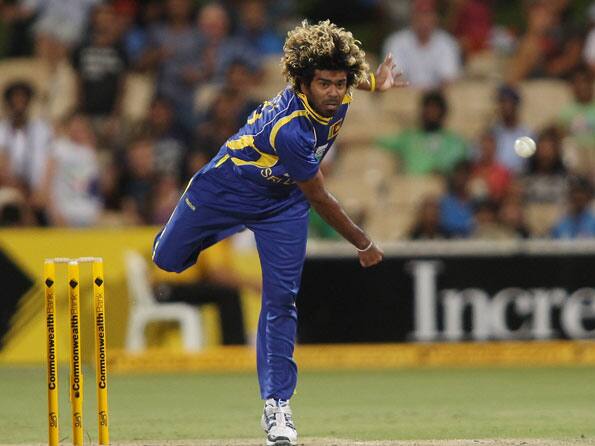
Cricket Country Staff
Editorial team of CricketCountry.
A five-ball over during yesterday's ODI between India and Sri Lanka may have caused a lot of controversy but the ICC and Cricket Australia sought to play down the incident.
Written by Cricket Country Staff
Published: Feb 15, 2012, 09:18 PM (IST)
Edited: Feb 15, 2012, 09:18 PM (IST)


When Lasith Malinga bowled the 30th over of the day, the Sri Lankan pacer sent down five deliveries after which the umpires indicated over change © Getty Images
Sydney: Feb 15, 2012
A five-ball over during Tuesday’s ODI between India and Sri Lanka may have caused a lot of controversy but the ICC and Cricket Australia sought to play down the incident.
The ICC dismissed the incident as “a straightforward, honest mistake by the umpiring team.”
Cricket Australia took a similar stance.
“International umpires, like international players, perform to a high level but like players, they are human and make mistakes from time to time. But once a decision is made, it’s made and we get on with the game,” a CA spokesperson was quoted as saying by The Daily Telegraph.
However India’s refusal to accept DRS was also seen as a reason for this glaring error.
According to newspaper, “…communications between the host broadcaster, the third umpire in the stands and the on-field umpires are greatly reduced when the DRS (decision review system) is not in operation.”
The match was tied, with both teams finishing on 9-236 after Indian captain MS Dhoni hit three off the final ball.
However, in a rare and internationally embarrassing incident, Lasith Malinga bowled only five balls in the 30th over of India’s innings.
The on-field umpires Simon Fry and Nigel Llong, video umpire Bruce Oxenford, match referee Andy Pycroft and the players on the field, failed to realise that India had been dudded as it attempted a third successive victory in the tri-series. (PTI)
This website uses cookies so that we can provide you with the best user experience possible. Cookie information is stored in your browser and performs functions such as recognising you when you return to our website and helping our team to understand which sections of the website you find most interesting and useful.
Strictly Necessary Cookie should be enabled at all times so that we can save your preferences for cookie settings.
If you disable this cookie, we will not be able to save your preferences. This means that every time you visit this website you will need to enable or disable cookies again.
